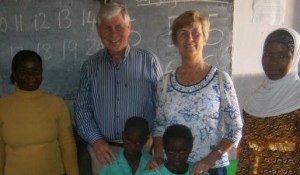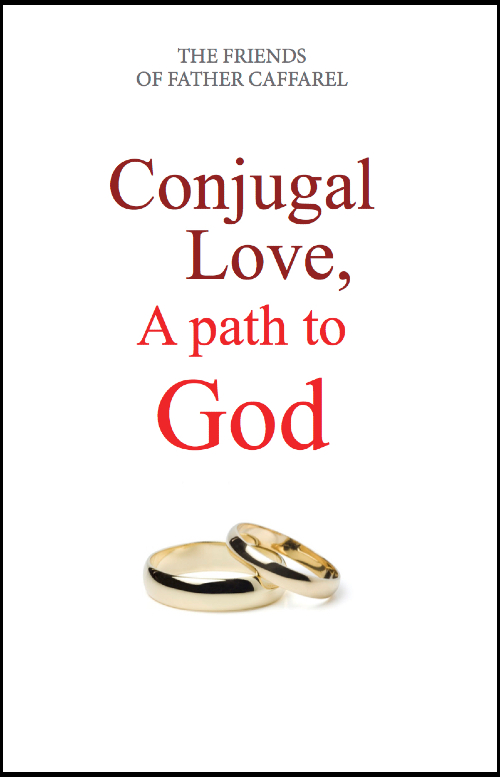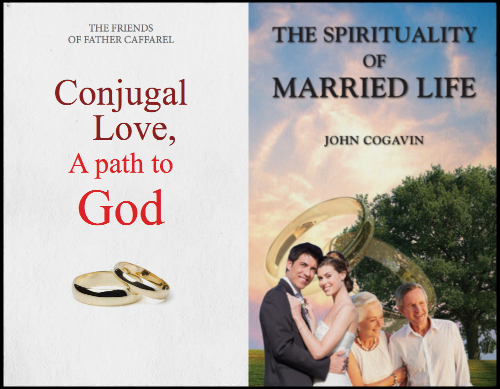Taken from http://irishcatholic.ie/article/spirituality-married-life
By J. Anthony Gaughan
It is often stated that there is no such thing as a perfect marriage. On reflection and taking account of the human condition one realises that this is a truism. But there are successful marriages. In this timely book John Cogavin provides advice, cautions and suggestions to enable couples of all ages to enjoy such marriages.
The book is skillfully shaped. At the outset there is a brief history of marriage. This concludes with the author’s observation that generally marriage has and continues to be recognised as a social union between a man a woman for the betterment of each individual, couple, their children and society.
Cogavin is particularly concerned with Christian marriage and its status as a sacrament. He indicates that by virtue of Christ’s references to marriage in the New Testament the contract of marriage was raised to the dignity of a sacrament and was formally declared to be one of the seven sacraments at the Fourth Lateran Council in 1214.
He notes the subsequent evolution of Catholic teaching on marriage. In the first millennium the emphasis was on child-bearing, whereas in the Second Vatican Council in the 1960s marriage was described as the love of the couple for each other and the sexual love of the man and the woman open to fruitfulness.
As an institution marriage has always had to face challenges. The arrival of Marshall McLuhan’s ‘global village’ and other features of today’s quick-changing world tend to undermine stability in all kinds of relationships, including marriage.
There is consumerism with its ‘Get rid of the old, take on the new’. Then there is the spirit of the age. Cogavin identifies this as the New Age philosophy which he describes as having morphed into ‘Transcendental Meditation’ and eventually into Scientology.
Its adherents claim to be spiritual as distinct from religious, thereby freeing themselves from the constraints of objective morality. It nurtures relativism and a love which is self-centred and at odds with the love of the other basic to a successful marriage.
The author recalls his marriage to Elaine in 1976. They faced the challenges experienced by most young couples: pressure of work – both were at work – a mortgage, high taxation, increasing cost of living and the raising of three sons. This and their involvement in recreational pursuits caused them to live what John describes as ‘parallel lives’.
Fortunately they became acquainted with a movement for married spirituality: Equipes Notre-Dame (Teams of Our Lady). Founded by Fr Henri Caffarel and four young couples in Paris in 1939, its aim is to refresh marriages by high-lighting the unique spirituality of married life.
To this end couples are encouraged to sit down once a month and reflect on the whither and how of their married life. This and other exercises, such as prayer and Bible-reading, helped John and Elaine to a greater appreciation of their marriage and its sacramental character.
For Cogavin togetherness is an essential ingredient of a successful marriage, but he also insists on the importance of each party respecting the other party’s independence. He writes that in marriage ‘we must learn to remove our sandals before the sacred ground of the other’.
This leads him to argue that marriage should be regarded as a covenant rather than as a contract. He describes a covenant as a binding commitment entered into by two or more parties agreeing together what is best for each and what will be best for the common good, whereas a contract is more about power, control and mistrust. This insightful suggestion is very much in accord with an enlightened enhanced appreciation of the unique importance and value of every individual person.
The practical wisdom articulated in this book is distilled from a real as distinct from a notional knowledge of marriage. Hence its authenticity. Any couple intent on making a success of their marriage will find it an invaluable vademecum.
John Cogavin, the author, can be contacted directly about this book and the spirituality programme for married couples at cogavins@hotmail.com. For further information on Équipes Notre Dame see
www.equipes-notre-dame.ie



